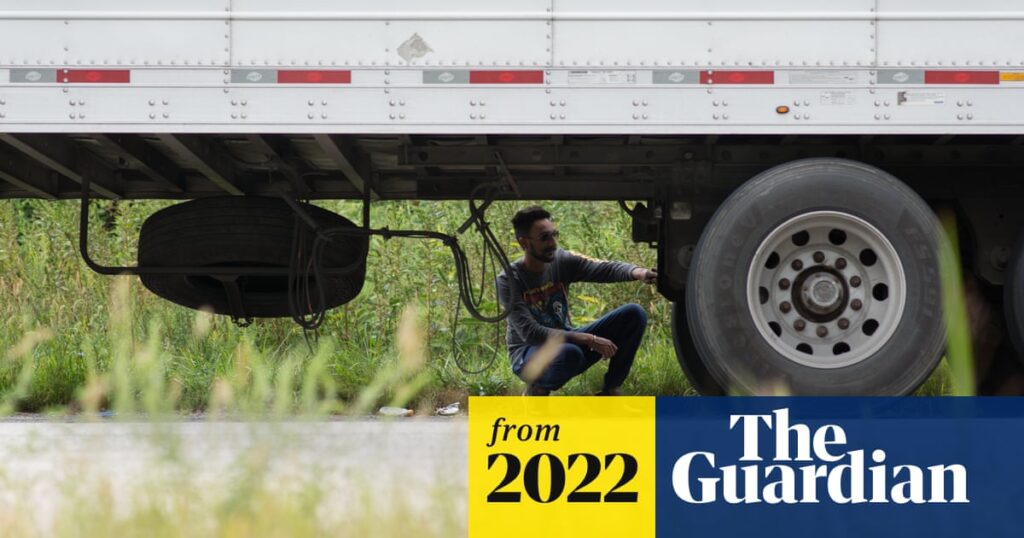After a night of driving an 18-wheeler across the country in late September, Gurpreet Singh woke to notifications from US Immigration and Customs Enforcement (ICE) on his phone. He promptly returned the call, then took a selfie to upload into the immigration officials’ tracking app.
That morning, fatigued from an uninterrupted 11-hour drive beginning in Bakersfield, California, Singh, a Punjabi immigrant awaiting asylum, mistakenly confused the time zones. Failing to receive the expected notification, he sent an unsolicited selfie and fell asleep. As his co-driver continued from St. Louis to Chicago, notifications flooded in, including missed calls from a cousin who ICE had contacted in their search for him.
Singh, already anxious about timely delivery, now faced the fear that this error could jeopardize his immigration case.
Four years prior, Singh left his village in Punjab, flew to Mexico, and crossed into the US, where he was immediately apprehended, detained for five months, and then released on bond to await an asylum hearing. After six months, he applied for a temporary work permit and began working as a truck driver, transporting produce and meat between Bakersfield and various east coast locations.
However, two years ago, an immigration judge denied his asylum request and issued a deportation order. Singh appealed and was granted another hearing scheduled for the following year.
ICE continues to monitor Singh through various means, including automated calls and in-person appointments that sometimes conflict with his delivery schedule. Recently, officials installed the BI SmartLink app on his phone, which prompts him each month to upload a selfie for facial recognition verification.
At 27, Singh finds himself constantly adapting his life to the uncertainties of the US immigration system. Despite the possibility of deportation, he remains hopeful, often uplifting his spirits with Sikh scripture recordings. While driving into the desert loaded with peaches, he refreshes himself, inspects his truck, and prepares chai for the road.
Navigating life as a truck driver has led Singh to make significant changes, including cutting his hair and shedding his turban, a decision that initially felt alien. As his immigration case hangs in the balance, he finds solace in work, the truck providing a stable routine amidst uncertainty. Singh captures glimpses of home through social media, resonating with the emotions that surface when he listens to songs reflecting his journey as an immigrant.


